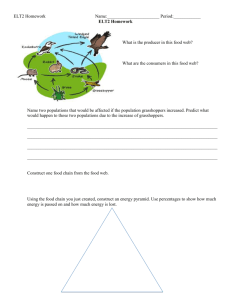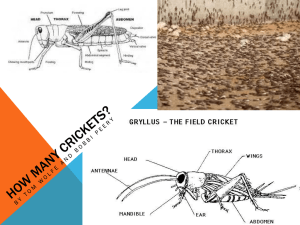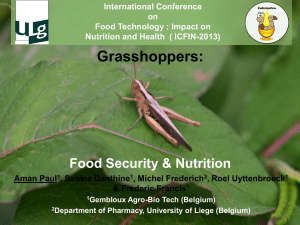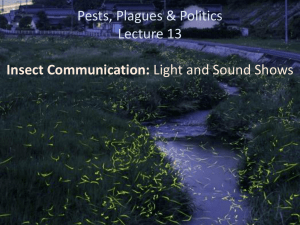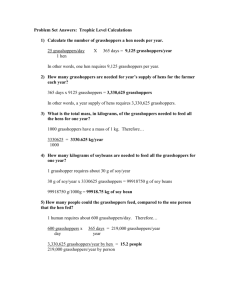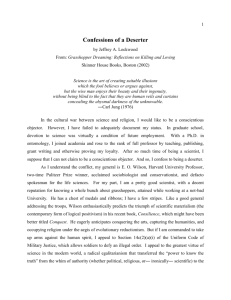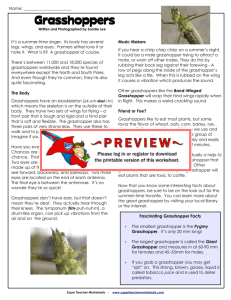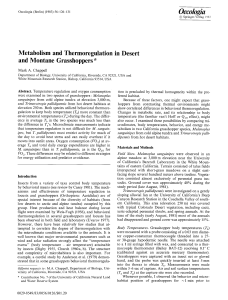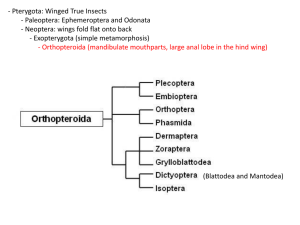SO-2015-Entomology-Orthoptera
advertisement
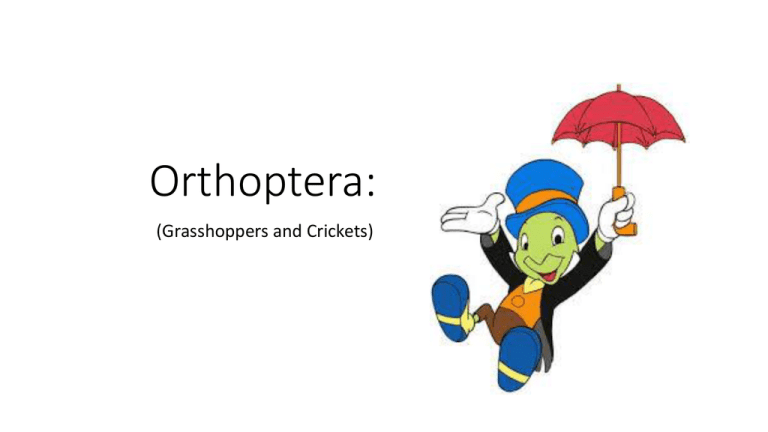
Orthoptera: (Grasshoppers and Crickets) • Orthopterans all tend to have several traits • • • • Enlarged hind legs Big compound eyes (usually) Large pronotum If winged, • forewings are thin and leathery • Hind wings are broad and membranous • Usually have two cerci • Females often have large protruding ovipositor • Generally are herbivorous • Males often ‘chirp’ but in different ways Tetrigidae: Pygmy Grasshoppers • Very recognizable • Small (3/4th inch) • Pronotum extends backward • Otherwise look like ‘Grasshoppers’ • Unusual in that they may overwinter as adults • Eat algae, organic matter • • • • • These ARE ‘grasshoppers’ Usually long forewings Short antennae, often thicker Have tympana Pronotum does NOT extend backwards • Big pest for agriculture • Produce low buzzing sound by rubbing wings together Acrididae: ‘Short horned’ grasshoppers • Locusts are specific type of grasshoppers What • On a year with lots of plants, grasshoppers multiply • Next year, there are too many grasshoppers • When crowded together, females hormones change • Next generation are bigger, and migrate • Eventually, when population spreads out again, grasshoppers return to normal is a locust??? Tettigoniidae: Katydids, long horned Grasshoppers • Very long and slender antennae (1:1) • Have tympana on foreleg tibia • Fairly large, katydids are usually green • There are a few carnivores in this group • Most eat leaves though • Tend to have long forewings Mormon cricket Gryllacrididae: Camel Crickets • Hump backed • Tan or grey • Long, threadlike antennae (1:1) • Do not produce sound • Do not usually have tympana • Usually wingless Jerusalem cricket Gryllidae: Crickets, tree crickets • Somewhat short/squat • Long tapering antennae (1:2) • Conspicuous cerci • Shorter forewings • Tympana on forelegs • Tree crickets are small • Green • Small heads • Crickets that specialize in burrowing • Have enlarged digging forelegs • Forewings cover half abdomen • Hind wings are longer • Feed on plant roots • Have very large rounded pronotum Gryllotalpidae: Mole crickets
